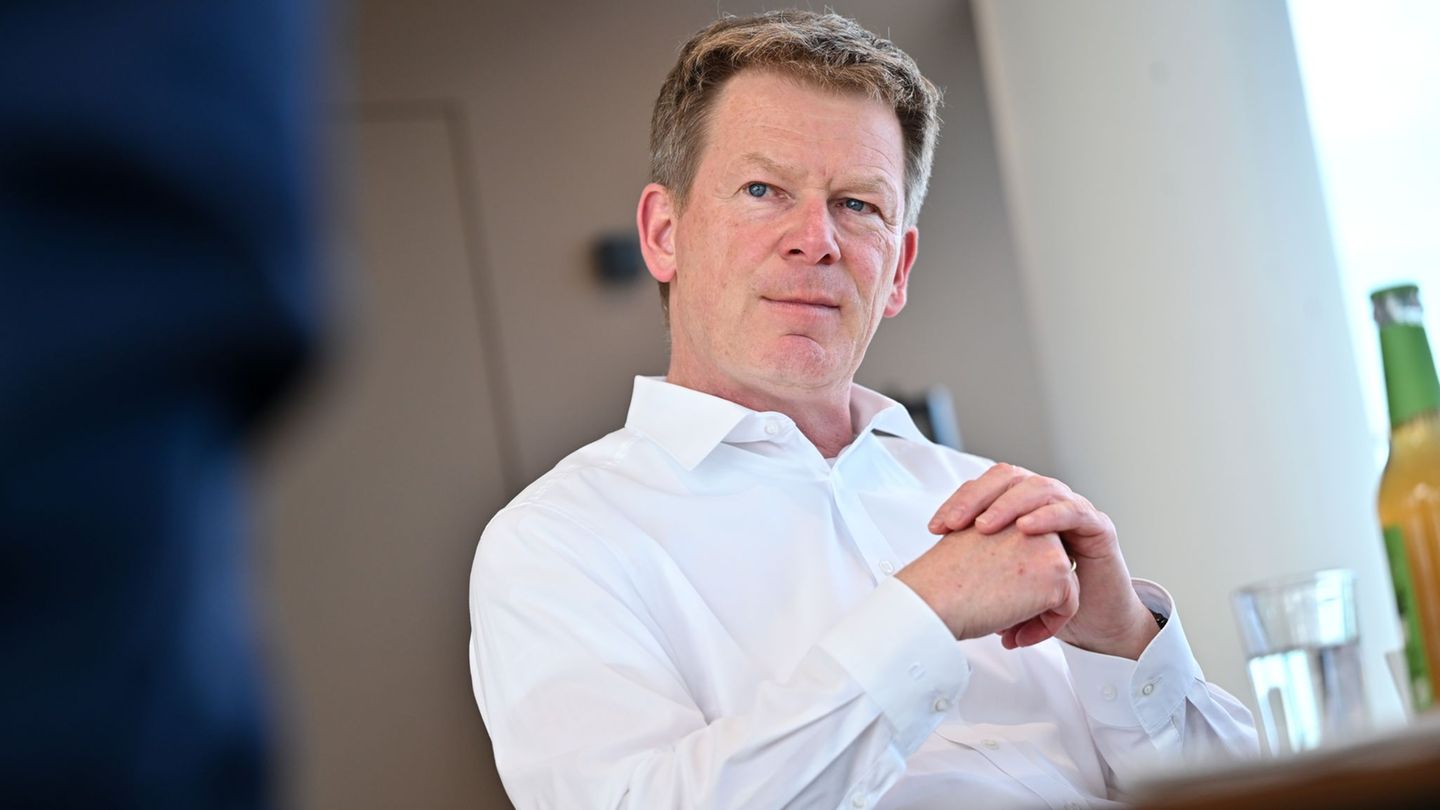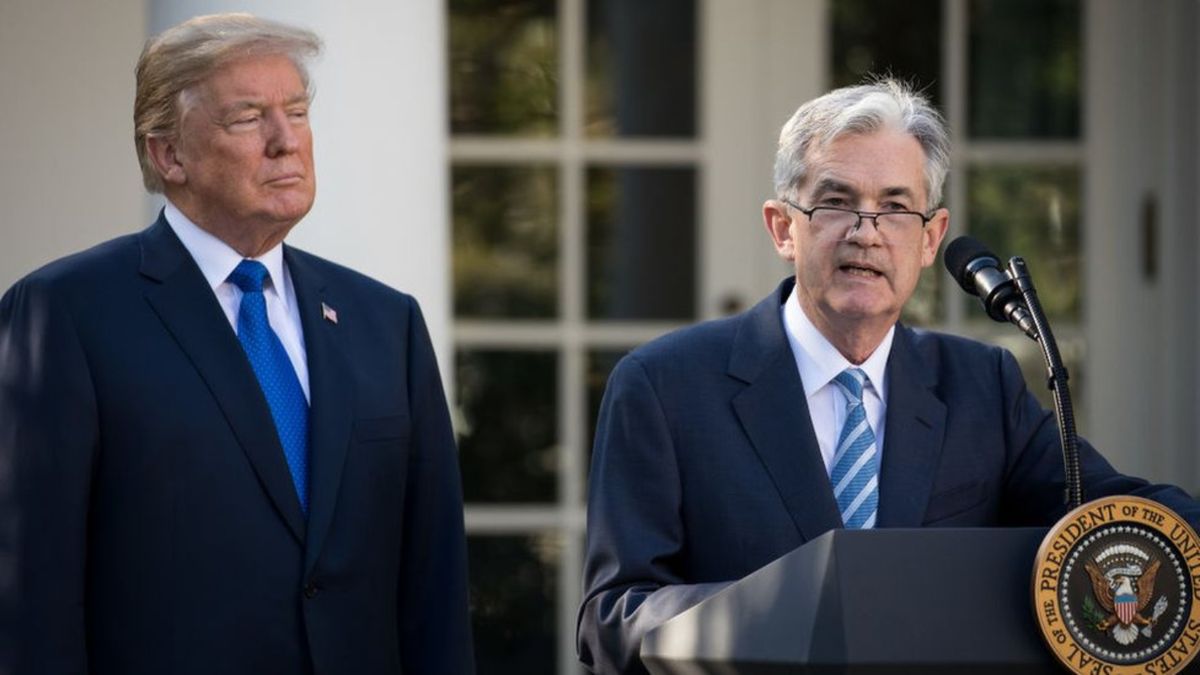Iran’s head of state Ayatollah Ali Khamenei only occasionally leads Friday prayers. After the rocket attack, he has an important message for the allies.
Iran’s religious leader Ayatollah Ali Khamenei defended the rocket attack on Israel and encouraged his allies in the region. “The brilliant action of our armed forces (…) was a completely legal and legitimate act. In fulfilling our duty, we do not hesitate or act hastily,” said the head of state at a Friday sermon in the capital Tehran. As usual with these speeches, a sniper rifle stood next to the lectern as a symbol of fighting spirit.
Khamenei, who according to the constitution has the final say in all strategic matters of the Islamic Republic, also threatened his archenemy. “Every strike against the Zionist regime (Israel) is a service to all of humanity,” said the 85-year-old. He described the Jewish state as a tool of the Americans. “This accursed regime is rootless, artificial and unstable and is only barely maintaining itself with the support of the United States.” The resistance of Hezbollah and Hamas will win, said Khamenei.
Iran’s foreign minister for talks in Lebanon
Meanwhile, Iran’s Foreign Minister Abbas Araghchi traveled to Lebanon for talks amid military tensions. The visit to the capital Beirut was intended to show Iran’s solidarity with the Lebanese people, said Foreign Office spokesman Ismail Baghai. However, observers suspect that the main issue is the successor to Hezbollah chief Hassan Nasrallah, who was killed in an Israeli air strike. Iran is the closest ally of the Hezbollah militia, which has been significantly weakened following the death of its leader.
Heavy bombings shake Beirut
During the night, Beirut was once again the target of massive bombings by the Israeli military. Unconfirmed reports said the airstrike targeted Hashim Safi al-Din, head of the Hezbollah militia’s Executive Council. He is considered the most promising candidate to succeed Nasrallah. Israel bombed a meeting of the Hezbollah leadership in an underground bunker around midnight, at which Safi al-Din was also present, the New York Times reported, citing three Israeli officials. It is still unclear whether Safi al-Din was actually in the bunker at the time. Hezbollah did not comment.
Air alert again in Israel’s north
Meanwhile, the mutual shelling continued. According to the army, cities and towns in northern Israel were again attacked with rockets from Lebanon. 20 incoming projectiles were registered in the greater area of the port city of Haifa. There were also air alarms in numerous places further north and east in the Galilee. Some of the rockets were intercepted, the rest fell in open areas. The army initially did not report any casualties or major damage.
Israel’s army urges Lebanese to flee
The Israeli army warned residents of dozens of towns in southern Lebanon of planned attacks and called on them to flee immediately. Anyone who stays near Hezbollah members, facilities and weapons is putting their life in danger, an Israeli military spokesman wrote in Arabic on the X platform. It is to be expected that every house that Hezbollah uses for military purposes use, be attacked.
The places mentioned by the speaker are almost all south of the Litani River. The Israelis want to push back the Hezbollah militia behind this river, which flows from east to west about 30 kilometers north of the de facto Israeli-Lebanese border. The aim is to restore security in northern Israel so that around 60,000 evacuated citizens can return home. A UN resolution also stipulates that Hezbollah should withdraw behind the Litani River.
Israeli bombings also on the border with Syria
According to Lebanese sources, the Israeli military also attacked targets near a border crossing between Lebanon and Syria. Security circles and border officials reported that the Masnaa crossing had to be closed as a result of the attacks. When asked, the army in Israel said it was looking into the matter. The United Nations Refugee Agency (UNHCR) confirmed the attack.
The television station CNN showed footage of a large crater that is supposed to document the impact on the road. This information cannot currently be independently verified. The crossing has been used by tens of thousands of people to flee to Syria in recent days. According to the Israeli army, Hezbollah is said to be smuggling weapons into Lebanon via Syria.
Source: Stern
I have been working in the news industry for over 6 years, first as a reporter and now as an editor. I have covered politics extensively, and my work has appeared in major newspapers and online news outlets around the world. In addition to my writing, I also contribute regularly to 24 Hours World.




